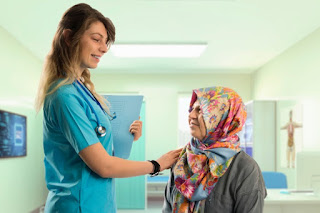This article is part of our series looking at how Black Americans navigate the healthcare system. According to our exclusive survey, 1 in 3 Black Americans report having experienced racism while seeking medical care. In a roundtable discussion, our Medical Expert Board called for better representation among providers to help solve this widespread problem.
Verywell Health: How, if at all, has COVID-19 further highlighted the need to develop more culturally competent care?
Dr. Ali: COVID shone a light on already-existing disparities in health care when it comes to equal access to high-quality care for everyone, regardless of socioeconomic class, race, ethnicity, or cultural background.1 It also highlighted disparities in medical risk factors–such as who is at high risk of severe disease.2
Minority-Led Health Care Company Fills the Gaps in Senior Health Care
Verywell Health: What research would help provide better heart-health care for Black patients?
Dr. Ali: More research is needed on heart failure with preserved ejection fraction (HFpEF, formerly known as diastolic heart failure) in everyone, and particularly in Black women.
More inclusion of considerations of race and ethnicity is needed in valvular heart disease research as well.
Much has been done in the areas of hypertension, heart attack, and stroke,3 and continuing this research, particularly as the field of cardiogenomics begins to open up, will be important.
Verywell Health: What is your advice to a patient who doesn't feel like their medical care meets their individual needs?
Dr. Ali: Find another healthcare system and/or healthcare professional with whom you feel rapport and who is in tune with your individual needs. Your needs are important. It may take some time, but it is worth it to find that right fit.
